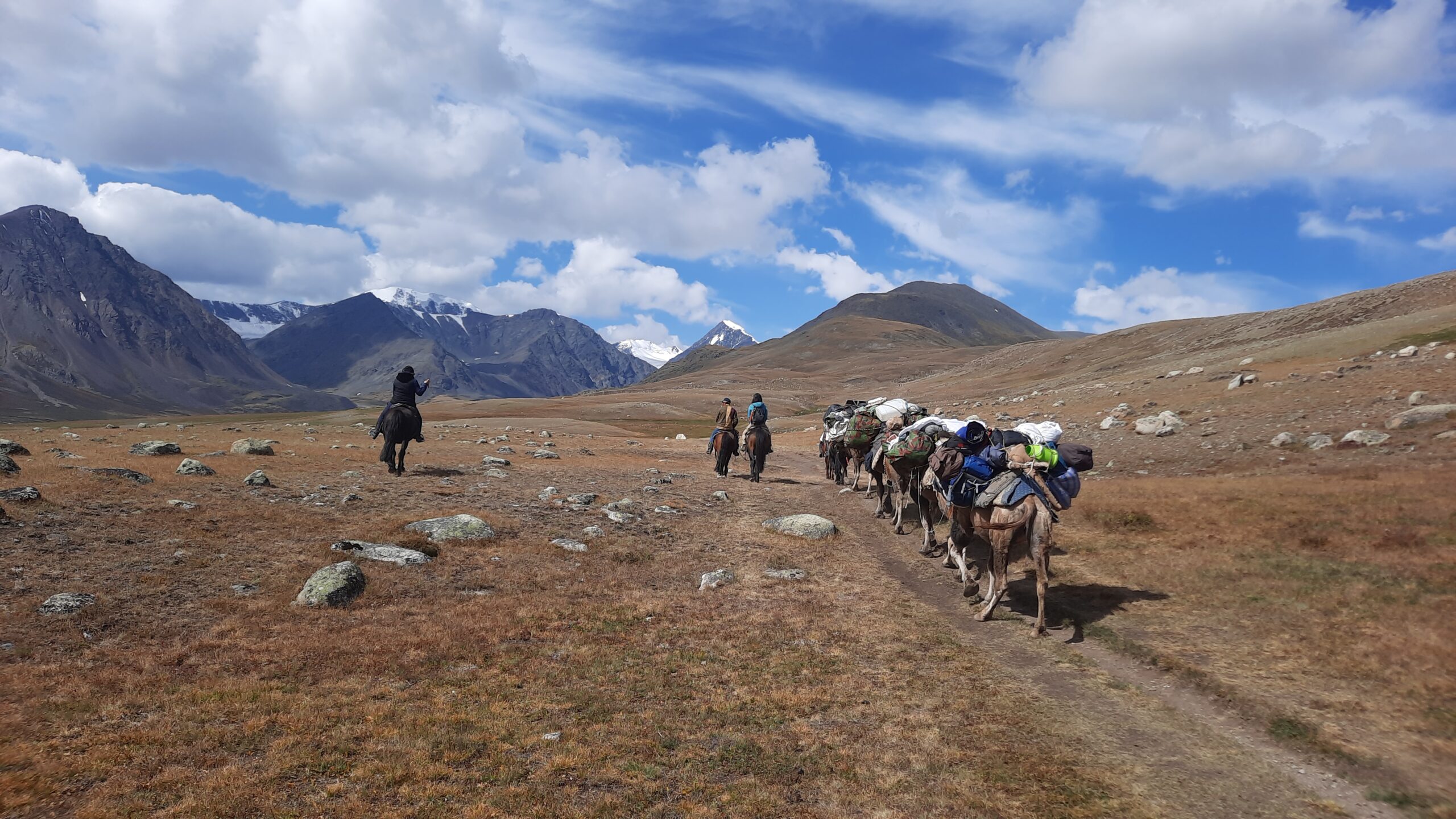Western Mongolian Kazakh Culture: A Rich Tapestry of Tradition and Resilience
The Kazakh people of Western Mongolia, primarily residing in Bayan-Ölgii Province, are a distinct ethnic group known for their vibrant culture, nomadic lifestyle, and deep-rooted traditions. Here’s an in depth look at their culture, nomad games, history, food, festivals, and migration practices.
1. Culture
Kazakh culture in Western Mongolia reflects a blend of Islamic faith, Turkic heritage, and a strong connection to nature. Mongolian Kazakhs are traditionally semi nomadic pastoralists, herding sheep, goats, yaks, camels and horses. Mongol Kazakhs have a rich and diverse cultural heritage beyond just eagle hunting. Also, Kazakhs are very famous in all over the world with golden eagle trainers and golden eagle hunters.
Language and Religion
Kazakhs speak the Kazakh language, written in Cyrillic script in Mongolia, and practice Islam, which influences their daily life and ceremonies.
Art and Music:
Traditional Kazakh music, featuring instruments like the dombra (a two stringed lute), is integral to their cultural expression. Songs often recount epic tales, historical events, or emotional narratives.
Intricate embroidery, felt making, and leatherwork are hallmarks of their artistic tradition, often seen in clothing, rugs, and yurts.
Family and Community
Kazakh society is family oriented, with elders holding significant respect. Community ties are strong, and events like weddings, funerals, and festivals are celebrated collectively.
2. Nomad Games
Traditional Kazakh nomadic games showcase their physical strength, horsemanship, and competitive spirit.
Kökpar. Tartu
A thrilling horseback game where riders compete to grab a goat carcass and carry it to a goal. It requires exceptional strength and coordination.
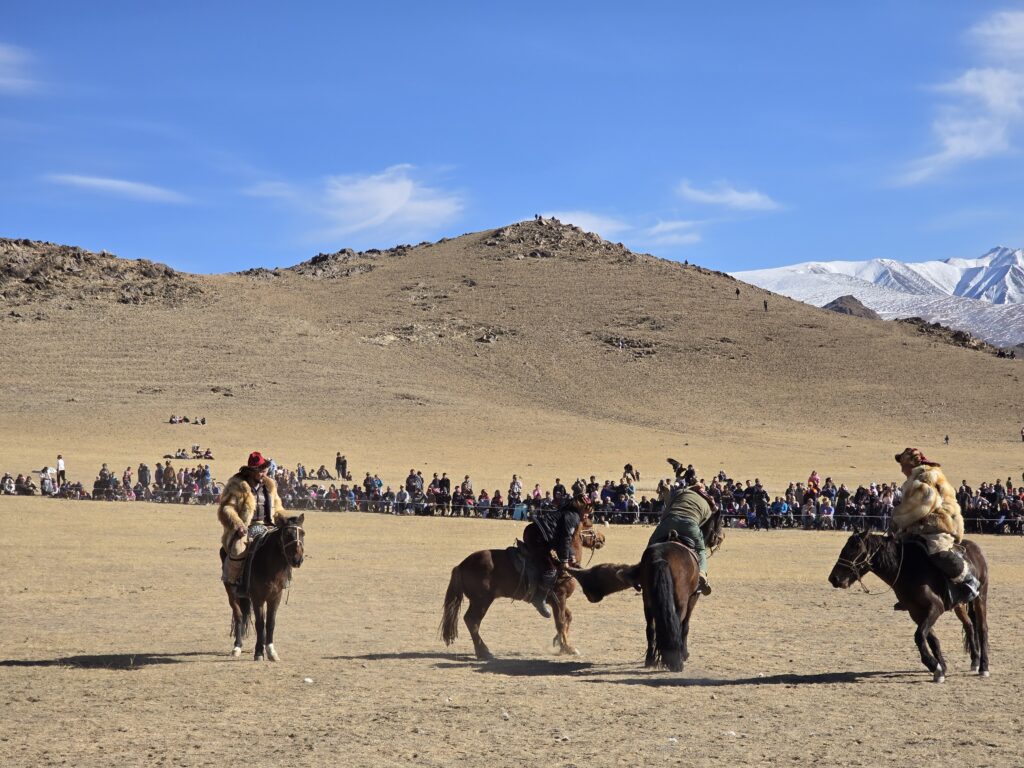
Tenge iliu Tiyn Teru .
A horseback game where riders race to pick coins off the ground, demonstrating agility and precision.
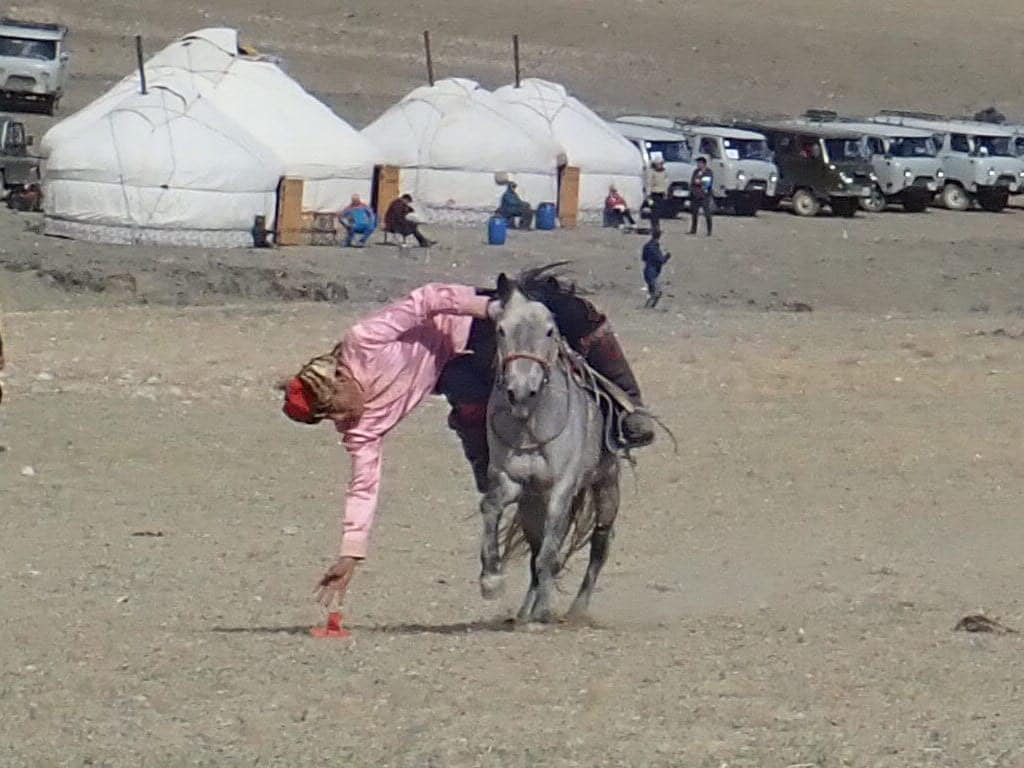
Kyz Kuar (Chasing the Girl):
A playful game where a male rider chases a female rider. If he catches her, he earns a kiss; if not, she has the right to whip him playfully.
Wrestling
Known as Kazakh Kuresi, this traditional form of wrestling tests strength and technique and is a highlight of local festivals.
3. History
Origins
The Kazakhs in Mongolia are descendants of Turkic and Mongolic nomads who migrated to the Altai region centuries ago. Their history is intertwined with the rise and fall of empires, including the Mongol Empire.
Migration to Mongolia:
During the 19th century, Kazakhs moved to Mongolia, escaping wars and seeking better grazing lands. They settled in the western Altai Mountains, preserving their cultural identity while integrating with Mongolian society.
Cultural Preservation
Despite the influences of modernization, Western Mongolian Kazakhs have maintained their language, traditions, and eagle hunting practices, which are now celebrated globally.
4. Food
Kazakh cuisine is hearty and meat-heavy, reflecting the nomadic lifestyle.
Staple Dishes
Beshbarmak : The national dish, consisting of boiled meat (usually mutton or beef) served with noodles.
Kazy: Horse meat sausage, a delicacy for special occasions.
Shorpa: A rich meat soup with vegetables and spices.
Dairy Products:
Kumis: Fermented mare’s milk, a refreshing and slightly alcoholic drink.
Aaruul: Dried curd, a nutritious snack.
Suutei Tsai: Salted milk tea, often served with bread or dried cheese.
Hospitality:
Guests are always offered food, and sharing a meal is a cornerstone of Kazakh hospitality.
5. Festivals
Kazakh festivals are vibrant celebrations of their heritage.
Nauryz (Persian New Year)
Celebrated on March 21, Nauryz marks the spring equinox with feasting, music, and games. Families prepare special dishes, clean their homes, and visit relatives to celebrate renewal and unity. The Nauryz Festival is often described by Kazakhs as ‘Ulystin uly kuni,’ meaning ‘the great day of the community.’ It is a time when people don their finest attire, visit family and friends especially the elderly and neighbours. The festival also features street performances of traditional music and dance, as well as sports, fostering cultural diversity, tolerance, and community solidarity. These traditions are passed down through generations, ensuring their preservation and the strengthening of communal bonds. During Nauryz celebrations, past offenses are forgiven and forgotten and everybody makes a wish to leave all badness behind and bring renewal in the New Year.
Golden Eagle Festival:
Golden Eagle Festival is a must-see event in Asia, particularly in Mongolia.
This fascinating festival is held in the Western part of Mongolia by local Kazakh minority to bring and promote their heritage to their next generation and to the world. Local Kazakhs show their eagle hunting culture and their unique traditions.
Held in October, this iconic event showcases the skill of eagle hunters and features traditional games, cultural performances, and crafts.
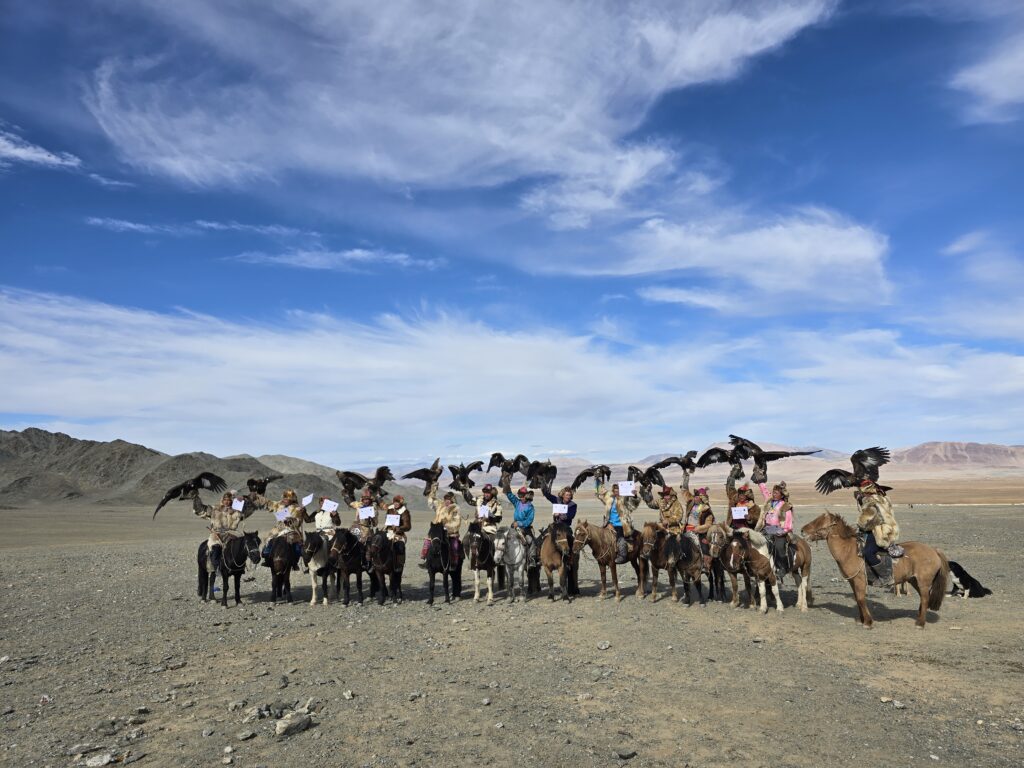
Wedding Celebrations:
Weddings are grand, multi-day events filled with music, dance, and feasting. Rituals like the bride’s dowry presentation and horse games are integral to the festivities.
6. Migration
Nomadism is central to the Kazakh way of life, driven by the need to find fresh pastures for livestock.
Seasonal Migration:
Spring and Summer: Families move to high-altitude pastures where livestock graze freely in lush meadows.
Autumn and Winter: They return to lower altitudes, where conditions are more manageable, and livestock is kept closer to home.
Logistics:
Entire households, including yurts (gers), belongings, and livestock, are transported using camels or trucks.
The movement is a family effort, with every member playing a role.
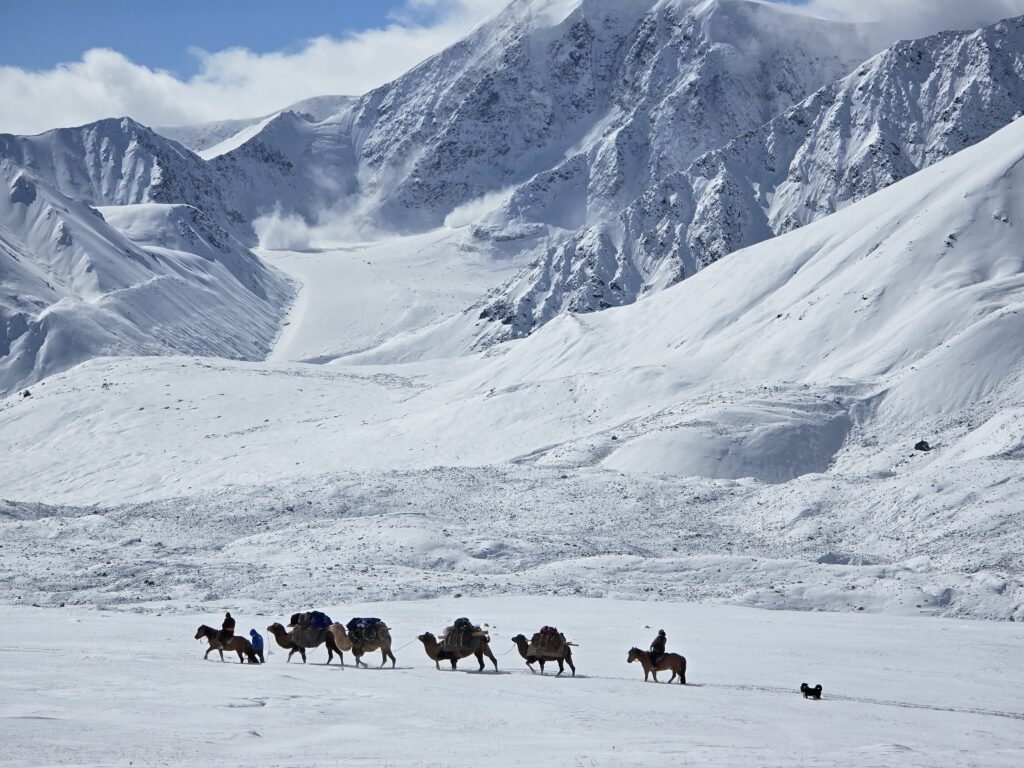
Connection to Nature:
Nomadic migration fosters a profound understanding of the land and seasons, ensuring sustainable use of resources.
Conclusion
The Kazakhs of Western Mongolia embody a harmonious blend of ancient traditions and adaptability to modern challenges. Their eagle hunting, vibrant festivals, hearty cuisine, and nomadic lifestyle offer a glimpse into a world where cultural heritage and nature coexist beautifully. This enduring way of life is not only a source of pride for the Kazakh people but also an enriching experience for anyone fortunate enough to witness it.
Dive into Kazakh culture and stay in the same house and experience their cuisine and their way of life just like themselves. We know the best.
We offer you authentic Kazak experience
Also Interesting

